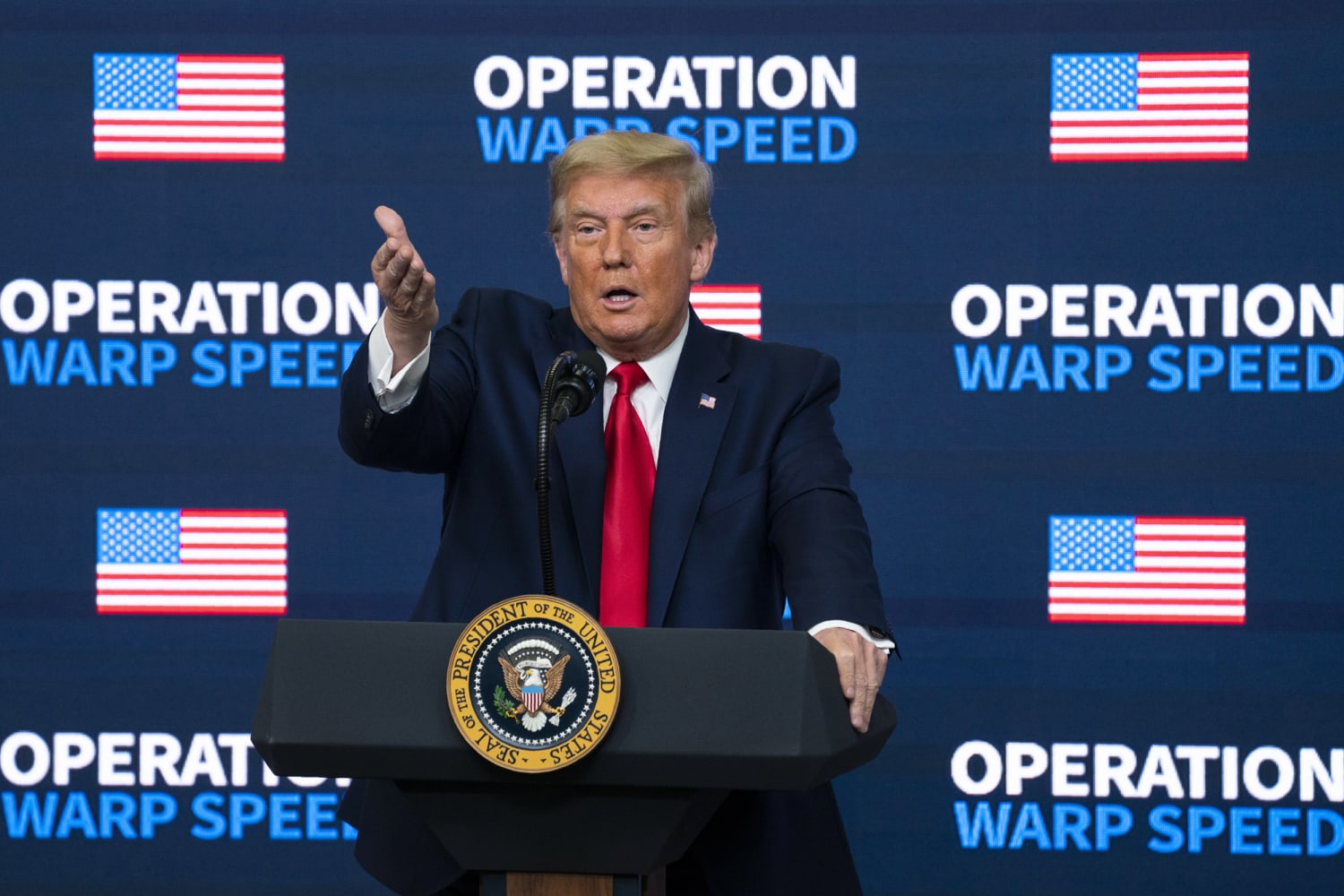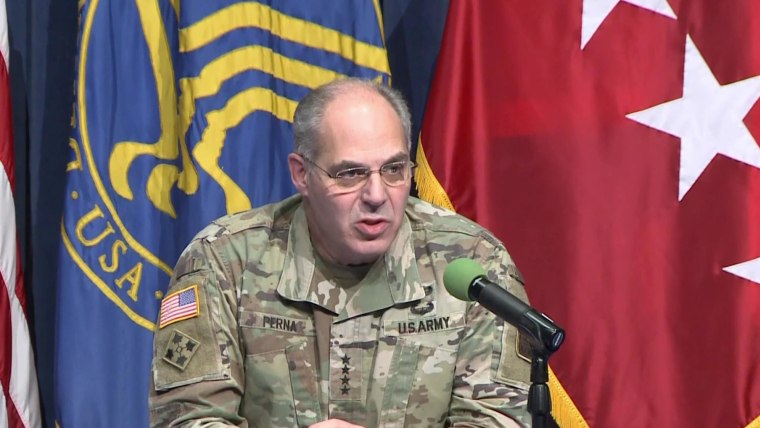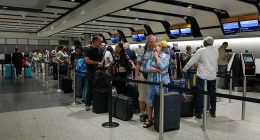The Trump administration’s Operation Warp Speed blamed a variety of factors including snowstorms, the holidays, storage challenges and general inexperience for the slower-than-expected rollout of Covid-19 vaccines this month.
“There is a learning curve,” Moncef Slaoui, chief science adviser for Operation Warp Speed, said on a conference call with reporters Wednesday.
“There were a number of days that were ‘lost’ because of the holidays or snowstorms,” he said.
As of Wednesday, about 2.6 million people — most of them front-line health care workers and some nursing home residents — have received their first shots of the 14 million doses that were delivered this month, according to the administration. A review by NBC News of earlier data Tuesday found that at the current rate, it would take almost 10 years to inoculate enough Americans to get the pandemic under control.
The administration in September vowed that 100 million doses would be shipped by the end of the year. This month, Slaoui cut the projection to 20 million.
Slaoui and Army Gen. Gustave Perna, chief operating officer of Operation Warp Speed, said on Wednesday’s call that they weren’t satisfied with the numbers they had seen so far of vaccines administered.
“We agree that that number is lower than what we hoped for,” Slaoui said.
But, they said, they expected the pace of patients getting the vaccines to pick up.
“Vaccine uptake starts out a little slow, but then increases exponentially and very rapidly,” Perna said. “It’s been 12 days, two holidays, three major snowstorms.”
“Every day, everybody gets better, and I believe uptake will increase significantly as we go forward,” he added. He said he expected to see improvement in vaccine administration by mid-January.
The officials said that the federal government and vaccine makers had delivered 14 million doses to the states. On a separate conference call Wednesday, the Centers for Disease Control and Prevention said that 2.6 million people had received the shots so far, including people in nursing homes and assisted living facilities.
While the federal government has helped to coordinate the distribution of vaccine doses from manufacturers to the states, the coordination of administrating the vaccines has fallen to the states, many of which have been short on money, staff and other resources to smoothly schedule and give doses.
Slaoui, the former head of the pharmaceutical giant GlaxoSmithKline’s vaccines division, said the government welcomed more help if people wanted to offer it.
“Come to the table, put your sleeves up, and help us with specific ideas,” he said. “We welcome very much any input, but it needs to be specific and actionable.”
They said the government had so far enrolled 70,000 health care providers including doctor’s offices, hospitals and pharmacies as eligible to administer the vaccine. “As vaccines become available in pharmacies, it’s going to be more straightforward” for people to get them, Slaoui said.
Perna said another reason for the low number of vaccines administered was that officials had set aside some for CVS and Walgreens to use at long-term care facilities. “That does contribute to part of the lag, and it could be a significant number — a couple hundred million, for sure,” he said.
Slaoui said the slow pace of vaccines would not affect the government’s timeline for broad public access to vaccines by April.
“From an availability standpoint, there is no issue,” he said of the manufacturing process.
Source: | This article originally belongs to Nbcnews.com









